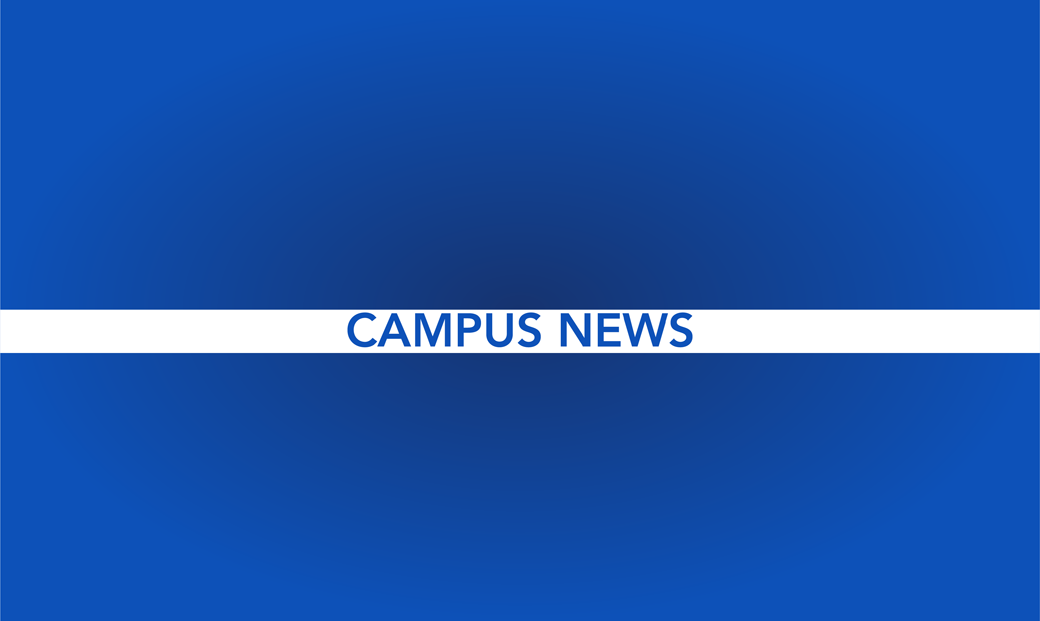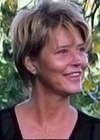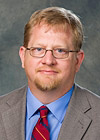
English Department’s Colloquium Series explores literature through innovative ways
Influential literary pieces such as Beowulf, Hamlet and Uncle Tom’s Cabin are being explored outside of the classroom through contemporary lectures the English Department offers each week.
Last year, the University of South Dakota’s English Department searched for a different way to present its annual colloquium lectures. After deliberation with the department’s colloquium committee and faculty, the Colloquium Series on Literature was created.
“We were thinking that it would be really interesting to do something that would be the whole sweep, and also give people a chance to interact with faculty and for faculty to interact with students,” said Darlene Farabee, associate professor and interim chair of the English department.
The colloquium series follows a chronological order as a literary walk-through of different time periods.
“We want to think of it as being a complete series where someone could show up to one and that one would stand alone, but then you could also go to all of them and sort of move all the way from Beowulf through 21st century poetry,” Farabee said.
Farabee
The series is meant to further people’s knowledge of certain literary pieces, and also to explore the entire topic so those who may not know anything about it can learn as well.
“The general frame of them is to present information and ask questions in a way that assumes that perhaps the audience who’s there hasn’t read the particular text,” Farabee said. “You can still go and be a part of it and get quite a bit out of it without having the background material.”
Junior English major Mackenzie Stone has already discovered new information about Shakespeare.
“I really enjoyed Dr. Farabee’s lecture on Shakespeare,” Stone said. “It was cool seeing all the different reasons why Shakespeare is still taught today, and it was a new look on Shakespeare that I haven’t really gotten to see.”
Prentiss Clark, a visiting assistant professor who specializes in 19th century American literature, said the series is a good way for students to meet the English faculty.
“The series is a good introduction to faculty, to literature (and) the questions that different fields of literature ask us to wrestle with,” Clark said.
Clark
The amount of people who attend the series fluctuates at times, but overall has a good turnout, Farabee said.
“There’s a pretty wide range of people in attendance. There are undergraduates, graduate students and then faculty members from the English department, but also faculty members from other departments.” Farabee said.
The discussions also do not focus on any specific student or major.
“The series can be useful for students and attendees with a variety of interests — master students who want to prepare for their exams, undergraduate students who are interested in literature and graduate students who are going to be teachers,” Clark said.
Rhye Leonard, a first-year business major, went to the first colloquium series discussion in which John Dudley, an associate professor of English, discussed why people should read and critique literature.
“Dr. Dudley pointed out if you analyze literature, then you learn more about how to relate to people,” Leonard said. “The discussion wasn’t too long, but it was full of a lot of information. It was simple, and I liked it.”
Dudley
Leonard also enjoyed that despite being a business major, she could associate with the information presented.
“It was good to see how the discussion could relate to other professions,” Leonard said.
Stone found the series helpful with a class she was having difficulties in.
“I was struggling with one of my classes, Introduction to Criticism,” Stone said. “The first week had a discussion that explained criticism, and it really helped me understand it more and hear it from another perspective.”
The colloquium series brings in professors not only from USD, but also from other universities to discuss their topics of expertise.
“Dr. David Stivers is coming from Savannah College of Arts and Design. He does some really interesting work in 20th century. He’s interested in conspiracy theories and mysteries and espionage,” Farabee said.
Clark will discuss the importance of early American writing at next week’s series.
“My approach is going to be to present a handful of transformative texts — texts that have had a significant influence in transforming political landscapes, literary traditions and the lives of their writers and readers,” Clark said.
She said she is excited for students to explore the perspectives of 19th century American literature.
“It will be an interesting way for students to get a sense of what are the big questions that these texts are asking (and) what are the ideas that are circulating through the different literatures of the early American period,” Clark said.
Clark said the ultimate intention of the colloquium series is to create enthusiasm over literature and enable English faculty to exemplify their areas of interest.
“The goal of the lecture series is to let people who are working in these areas really discuss and speak to and bring to life their areas of study,” Clark said.
Stone said it’s a way for students to engage in literary works.
“It’s a great experience for anyone who is interested in English or literature because the discussions are really short, they’re usually super funny and enjoyable,” she said.
The lectures are held every Monday from 4 to 5 p.m. in Beacom Hall room 129.




